Qihang Huang
Path-specific Underwater Acoustic Channel Tracking and its Application in Passive Time Reversal Mirror
Mar 01, 2021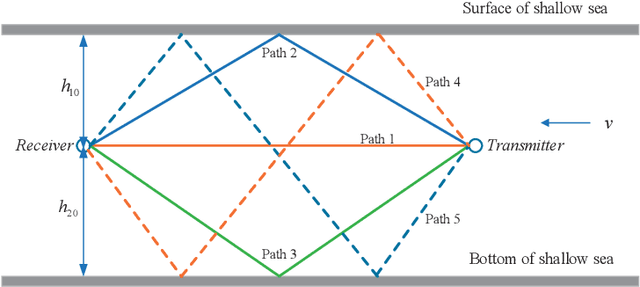
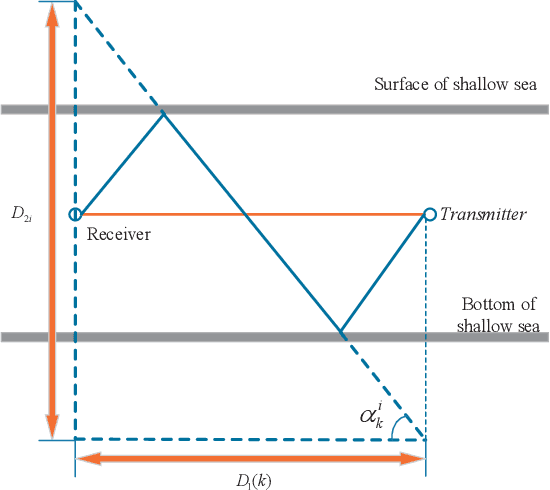


Abstract:We consider the underwater acoustic channel which is time-variant and doubly-spread in this work. Since conventional channel estimation and decision feedback equalizer (DFE) can not work well for this type of channel, a path-specific underwater acoustic channel tracking is proposed. It is based on the framework of Kalman filter. We provide a simplified sound propagation model as the state transition model. A multipath tracker is proposed which is tolerant of the model-mismatch. Then we can obtain the time-variant path number and path-specific parameters such as delay and Doppler scaling factor. We also consider the application of the proposed path-specific underwater acoustic channel tracking. We propose two types of passive time reversal mirror (PTRM) with our path-specific parameters for time-variant and doubly-spread underwater acoustic channel. With the path-specific parameters obtained by the proposed channel tracking, the proposed PTRM can not only match the time dispersion as conventional PTRM, but also the doubly-spread channel, since the path-specific delay and Doppler scaler factor can help to match the channel in both time and frequency domain. For extensive doubly-spread channel, we can further apply the path-specific compensation to the PTRM. Both simulations and experimental results by data from 2016 Qiandao Lake experiment show the efficiency of proposed path-specific channel tracking and proposed PTRMs with path-specific parameters.
Dynamic Underwater Acoustic Channel Tracking for Correlated Rapidly Time-varying Channels
Mar 01, 2021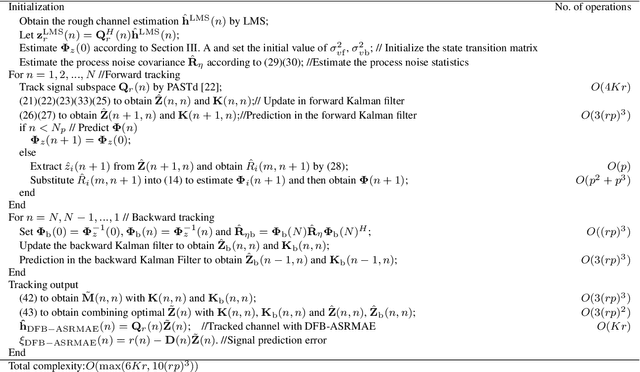
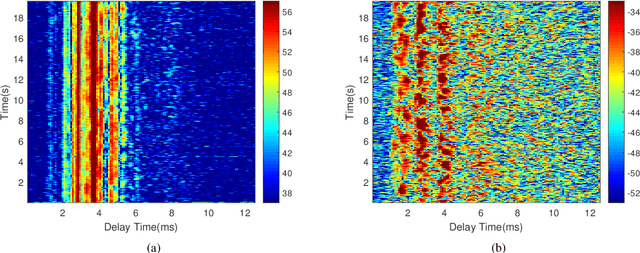
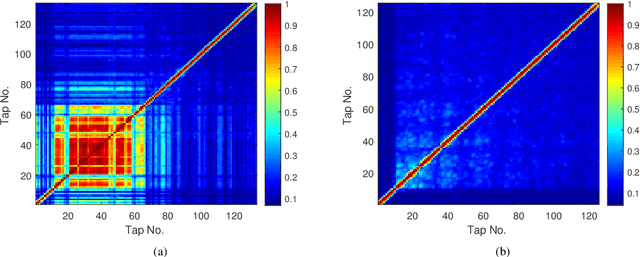
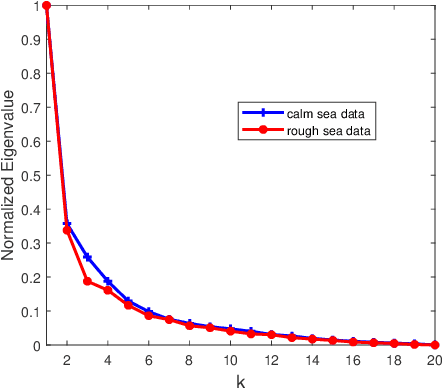
Abstract:In this work, we focus on the model-mismatch problem for model-based subspace channel tracking in the correlated underwater acoustic channel. A model based on the underwater acoustic channel's correlation can be used as the state-space model in the Kalman filter to improve the underwater acoustic channel tracking compared that without a model. Even though the data support the assumption that the model is slow-varying and uncorrelated to some degree, to improve the tracking performance further, we can not ignore the model-mismatch problem because most channel models encounter this problem in the underwater acoustic channel. Therefore, in this work, we provide a dynamic time-variant state-space model for underwater acoustic channel tracking. This model is tolerant to the slight correlation after decorrelation. Moreover, a forward-backward Kalman filter is combined to further improve the tracking performance. The performance of our proposed algorithm is demonstrated with the same at-sea data as that used for conventional channel tracking. Compared with the conventional algorithms, the proposed algorithm shows significant improvement, especially in rough sea conditions in which the channels are fast-varying.
 Add to Chrome
Add to Chrome Add to Firefox
Add to Firefox Add to Edge
Add to Edge